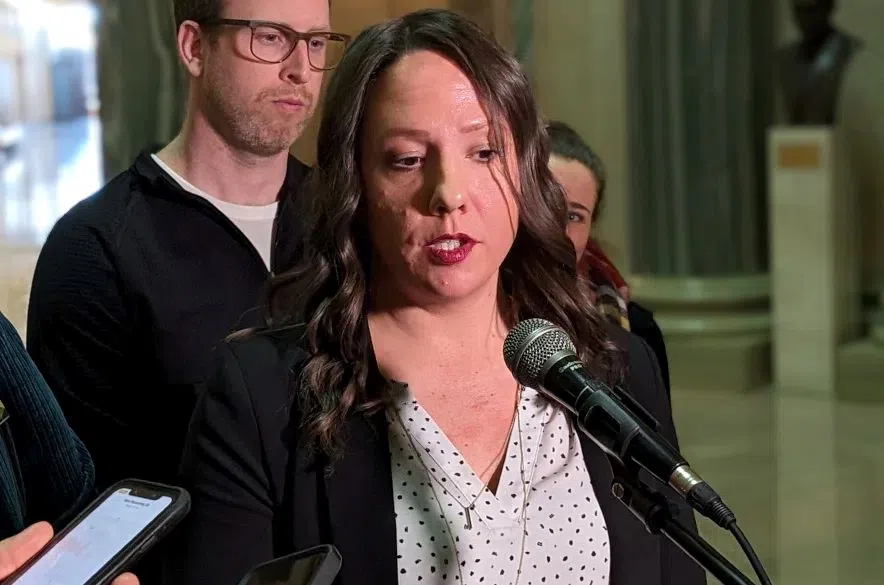Saskatchewan Teachers’ Federation president Samantha Becotte is waiting for clarification on language used in a proposed Memorandum of Understanding (MOU) before scheduling any dates to resume bargaining with the provincial government.
“We really need to get language confirmed within the MOU that was offered from the government to teachers as well as the SSBA,” she said, referring to the Saskatchewan School Boards Association. “We had committed to working over the weekend so that we could then return to the table sometime this week.”
On Monday, Education Minister Jeremy Cockrill said there had been ongoing communications with the teachers’ union over the Easter weekend since the government offered an MOU to use classroom support money.
The MOU would provide accountability frameworks to be developed by each individual school division with their teachers.
Becotte said the teachers’ union had not received any messages from the Ministry of Education since Thursday.
“Unfortunately, we haven’t heard back from the ministry on language that would be acceptable from their position within that MOU given what we had returned back,” she said. “It’s a little unfortunate because the process is now again delayed a bit, but (we’re) hopeful that we’ll be able to come to agreement on what that language looks like.”
Becotte said the STF was looking for those “meaningful guarantees” within the MOU. Two of the biggest things the union wants to see in the MOU is that it’s binding so promises can’t be clawed back, and a dispute resolution so the union can ensure that funding is provided to schools divisions.
“We need to be able to hold everyone who is involved in those processes accountable to those decisions that they are making,” she said.
Becotte remains hopeful that the ministry will reply with amendments to the clarifications.
The provincial government and the STF have been at an impasse since October. Teachers began imposing sanctions — including rotating strikes — when negotiations remained at a standstill in January.
Both sides blamed each other for contract talks breaking down.
A major sticking point in contract negotiations has been class size and complexity. Cockrill said issues of class size and complexity should be left with locally elected school boards and not in a collective agreement, while the STF has said it won’t return to the table until those issues are included in negotiations.
In March, the STF said it would suspend all future job action if the government accepted its offer to go to binding arbitration. The government rejected the STF’s offer and the sanctions remained in place.
Becotte said sanctions will lift if contract negotiations resume, but if contract talks fall apart again, sanctions will be put back in place with 48 hours of notice.











